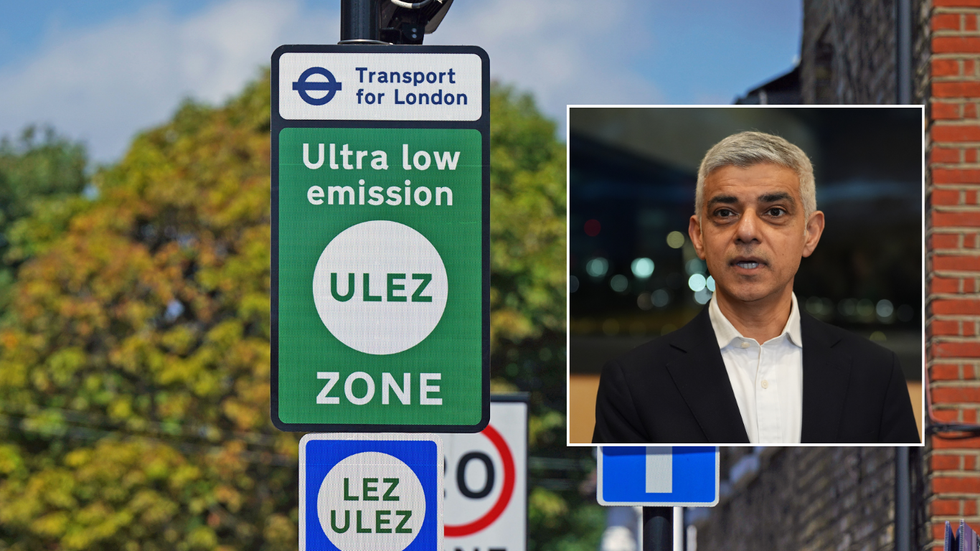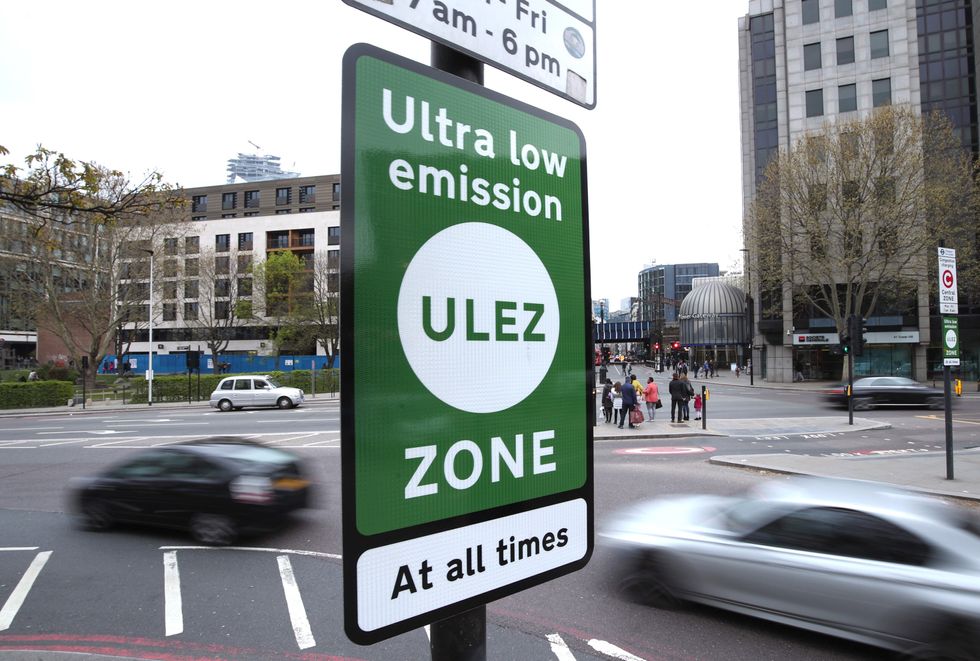WATCH: GB News reviews the Ulez one year later since it was expanded across Greater London
GB NEWS
A study by the University of Bath found that the Ulez caused serious economic benefits to Londoners
Don't Miss
Most Read
Sadiq Khan has claimed a major victory after reports found that the Ulez scheme has delivered a range of public health and economic benefits to Londoners.
It comes after a comprehensive study found an 18.5 per cent reduction in sick leave across Greater London following the implementation of the Low Emission Zone compared to areas without such schemes.
Researchers analysed over a decade of data from Greater London and Central London, finding that the introduction of the LEZ in 2008 and the Ulez in 2019 significantly reduced harmful pollutants.
The economic impact has also been substantial, with annual public health savings exceeding £37million, primarily through fewer respiratory illnesses and reduced workplace absenteeism.
Do you have a story you'd like to share? Get in touch by emailingmotoring@gbnews.uk

The report found that emissions across London dropped significantly under the Ulez scheme
PA
The findings demonstrate that London's clean air initiatives have been effective at improving both environmental conditions and public health outcomes.
It found that the LEZ reduced traffic-related nitrogen dioxide by 5.8 per cent and particulate matter by 9.7 per cent during its second phase of implementation in Greater London.
Meanwhile, the Ulez in Central London delivered a substantial 21 per cent reduction in traffic-related nitrogen dioxide and a 15 per cent decrease in particulate matter compared to pre-implementation levels.
These improvements were achieved through the gradual tightening of emission standards for vehicles entering these zones, with non-compliant vehicles facing daily charges.
The study also found that the number of electric and hybrid vehicles increased significantly in Central London following the introduction of the Ulez, with 337 more vehicles licensed compared to other local authorities.
The health benefits of these clean air policies extend beyond improved air quality with the research documenting a 6.8 per cent drop in the incidence of health problems and a 10.2 per cent decrease in respiratory issues compared to the period before the LEZ was introduced.
Professor Eleonora Fichera from the University's Department of Economics and Centre for 21st Century Public Health emphasised the broader societal impact of these initiatives.
She said: "These policies are not just environmental wins. They're also reducing labour market absenteeism and improving Londoners' life satisfaction. Clean air makes for healthier, happier, more productive communities."
Dr. Habtamu Beshir, who led the research at the University of Bath and is now based at UCL, highlighted the practical implications of the findings.
"Our work shows that clean air policy is smart policy. It protects health, saves money, and enhances quality of life - making the case for clean air initiatives stronger than ever," he said.
Fichera noted the global significance of these findings, stating: "With the World Health Organisation estimating 4.2 million premature deaths globally each year due to air pollution, these findings signal the urgent need for similar transport policies in other major cities, not just in the UK but around the world."
Under the current Ulez rules, non-compliant vehicles are charged £12 daily to enter the zones in place across London, with rulebreakers facing a fine of £180, although this can be halved to £80 if paid early.
LATEST DEVELOPMENTS:
 The Ulez is the UK's largest emissions-based charging zone PA
The Ulez is the UK's largest emissions-based charging zone PALast year, the London Mayor said: "The decision to expand the Ulez London-wide was a difficult one, but necessary to save lives, protect children’s lungs and help reduce the risk of Londoners developing asthma, dementia and a host of other health issues.
"The expansion to outer London is already having a significant effect – driving down levels of pollution, taking old polluting cars off our roads and bringing cleaner air to millions more Londoners."













